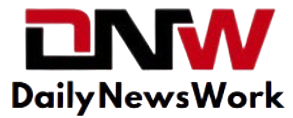Nowadays, companies are constantly seeking ways to increase efficiency, improve employee engagement, and stay ahead of the competition. The advent of advanced technology has brought about several game-changing innovations, one of the most notable being HR software.
As we enter 2025, software like this is no longer a luxury for businesses—it’s a necessity. The role of human resources has evolved, and so has the technology designed to support it. Gone are the days when HR departments were bogged down with manual processes and paper-based systems.
With the right software, organizations can streamline administrative tasks, automate workflows, enhance communication, and ensure compliance. But beyond these basics, it offers deeper benefits that directly impact the bottom line and overall company culture.
In this article, we’ll explore why HR software will be crucial for modern workplaces in 2025 and how it can transform business operations.
1. Streamlining Administrative Tasks
One of the most significant reasons HR software is indispensable is its ability to automate and streamline administrative tasks. HR departments traditionally spend a large portion of their time handling administrative duties such as managing employee records, processing payroll, tracking benefits, and ensuring compliance with labor laws.
These tasks are necessary but time-consuming. This software automates many of these administrative duties. For example, employee onboarding processes, payroll calculations, and benefits administration can be handled with minimal human intervention.
This reduces the chances of errors, speeds up processes, and allows HR professionals to focus on more strategic initiatives. Payroll software can calculate salaries, deductions, taxes, and generate pay stubs automatically, ensuring employees are paid accurately and on time.
By implementing this software, businesses can free up valuable time for their HR teams, enabling them to spend more time on activities that add value to the organization, such as talent acquisition, employee development, and strategic workforce planning.
2. Enhanced Data Management and Reporting
In the past, HR departments struggled with managing vast amounts of data. Employee information, payroll data, performance reviews, and benefits details were stored across different systems or, in some cases, on paper. This made it difficult to access and analyze important data when needed.
HR software consolidates all employee data into a centralized database, making it easier to manage and access. This centralized system offers real-time reporting and analytics, giving HR teams valuable insights into workforce trends and performance.
For example, it can generate reports on employee turnover rates, diversity metrics, and employee satisfaction scores, allowing businesses to make data-driven decisions.
The ability to quickly generate and analyze reports also helps HR teams remain compliant with various regulations, such as labor laws, health and safety regulations, and diversity requirements.
With built-in compliance tracking, this software ensures that companies are always up-to-date with the latest legal and regulatory changes, reducing the risk of costly fines or legal issues.
3. Improving Employee Engagement and Retention
Employee engagement is a critical factor in an organization’s success. Engaged employees are more productive, more satisfied with their work, and more likely to stay with the company long-term. Unfortunately, many businesses struggle to measure and improve employee engagement.
HR software provides tools to monitor and enhance employee engagement. For example, many HR platforms include features for conducting employee surveys, tracking performance feedback, and measuring job satisfaction.
By regularly gathering employee feedback, businesses can identify areas for improvement and take proactive steps to address employee concerns before they lead to turnover.
Moreover, this software can help improve retention by automating performance reviews and providing employees with ongoing feedback and career development opportunities.
4. Optimizing Recruitment and Talent Management
Attracting and retaining top talent is a major challenge for businesses in a competitive job market. Traditional recruitment processes often involve sifting through countless resumes, scheduling interviews, and manually managing candidate communications, which can be time-consuming and inefficient.
HR software simplifies and streamlines the recruitment process by automating many aspects of talent acquisition. Many HR platforms offer integrated applicant tracking systems (ATS) that automatically sort resumes, track candidate progress, and schedule interviews.
These systems help HR teams identify the best candidates quickly and efficiently, reducing the time-to-hire and ensuring that the organization secures top talent before the competition does.
In addition to recruitment, this software also plays a key role in talent management. It helps businesses identify high-potential employees, track their development, and offer personalized learning and growth opportunities.
5. Enhancing Compliance and Reducing Risk
In 2025, businesses face an increasingly complex regulatory landscape. Labor laws, tax regulations, and industry-specific compliance standards are constantly changing, and failing to comply can result in hefty fines and legal issues.
HR software helps businesses stay on top of compliance requirements by providing built-in compliance tracking tools. For example, HR platforms can automatically update employment law changes and ensure that HR policies are aligned with the latest regulations. This ensures that businesses avoid costly mistakes and reduce their risk exposure.
Moreover, this software can assist with maintaining proper documentation, such as employee contracts, benefits records, and payroll data, making it easier for businesses to pass audits and comply with legal requirements. Real-time tracking and automated alerts help HR teams stay compliant without the stress of manual monitoring.
6. Enabling Remote Work and Flexibility
The COVID-19 pandemic accelerated the shift toward remote work, and many companies continue to embrace flexible work arrangements. As remote work becomes the norm, HR software plays a crucial role in managing distributed teams.
It enables HR teams to manage remote workforces effectively by providing tools for tracking employee hours, monitoring performance, and maintaining communication. Many HR platforms include integrated communication tools, such as messaging and video conferencing, that make it easy for remote employees to stay connected with their colleagues and managers.
Additionally, this software can track employee performance based on results rather than hours worked, allowing businesses to manage remote employees effectively and ensure productivity without micromanaging.
With features like time tracking, project management, and goal-setting, this software enables businesses to create flexible work environments that foster trust and autonomy while still maintaining high performance.
7. Supporting Diversity, Equity, and Inclusion (DEI) Initiatives
Diversity, equity, and inclusion (DEI) have become central priorities for organizations in recent years. Companies are recognizing that a diverse and inclusive workforce leads to better decision-making, innovation, and employee satisfaction. However, measuring and tracking DEI progress can be challenging without the right tools.
HR software helps businesses support their DEI initiatives by providing tools for tracking diversity metrics, monitoring pay equity, and ensuring inclusive hiring practices. For example, HR platforms can generate reports on the gender, race, and age distribution of the workforce, helping businesses identify areas for improvement.
Additionally, it can automate the recruitment process to ensure that job postings reach a diverse pool of candidates. By using this software to track and monitor DEI efforts, businesses can take actionable steps to create a more inclusive and equitable workplace.
Conclusion
As we go deeper into 2025, HR software is no longer an optional tool for businesses; it’s a critical component of a modern, efficient, and employee-focused workplace. It provides invaluable support to HR departments and businesses alike, from automating administrative tasks to enhancing employee engagement, improving recruitment, and ensuring compliance.
In a competitive market, organizations that embrace HR software gain a significant advantage by streamlining operations, improving employee satisfaction, and staying ahead of regulatory requirements. By seamlessly managing diverse HR functions, this software ensures that businesses can focus on what truly matters: their people.









